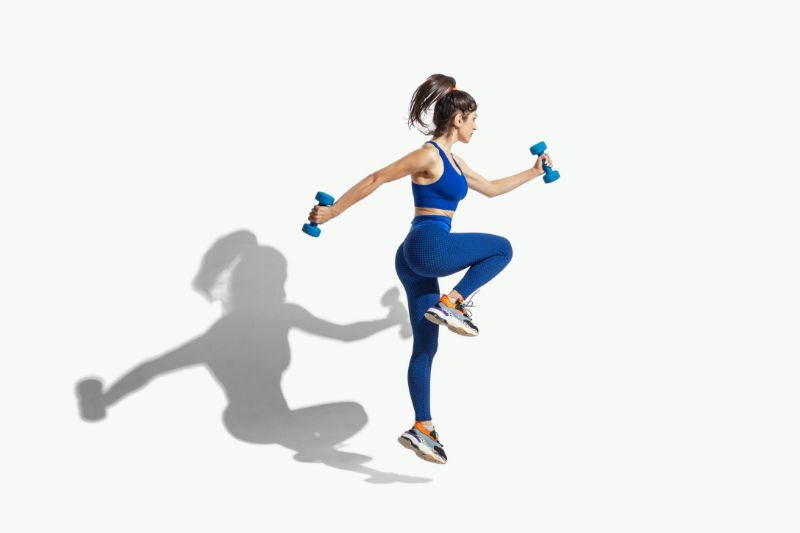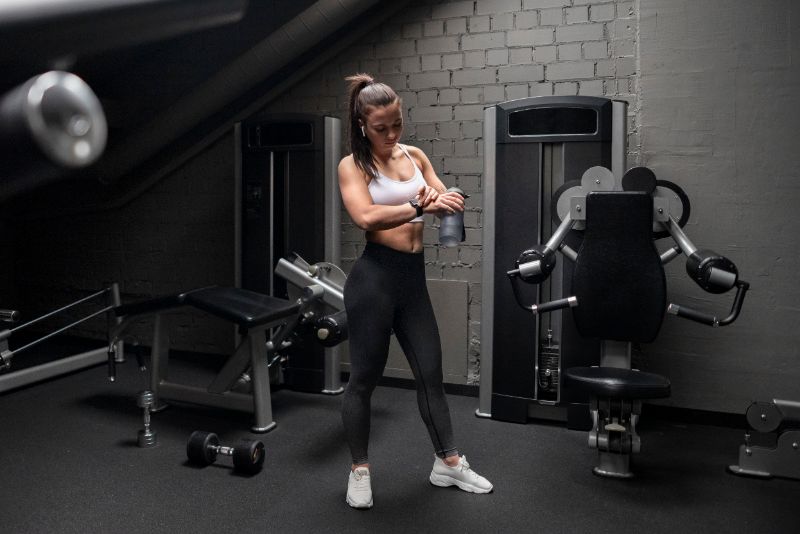After a strenuous workout session, your body is like a sports car that just raced around a track, needing the right fuel to recover and perform optimally. But what should you eat to replenish and rebuild?
The choices you make post-exercise can significantly impact your results and how your body bounces back for the next session. So, let’s explore the crucial elements of post-workout nutrition that can help you maximize your efforts and support your fitness goals effectively.
Importance of Post-Workout Nutrition
Post-workout nutrition plays a crucial role in replenishing your body’s energy stores and facilitating muscle recovery. Nutrient timing is vital for optimizing recovery strategies and performance. After your workout, your body is in a prime state to absorb nutrients efficiently, making it important to refuel within the post-exercise window.
Fueling your body with the right nutrients, such as carbohydrates and proteins, can help replenish glycogen stores and kickstart muscle protein synthesis. This process aids in repairing and rebuilding muscle fibers that were broken down during your workout. By prioritizing post-workout nutrition, you can enhance your body’s recovery process, reduce muscle soreness, and improve overall performance in subsequent training sessions.
Macronutrient Balance for Recovery
For optimal recovery after exercise, ensuring a balanced intake of macronutrients is essential. Your body requires proper recovery fuel to replenish glycogen stores, repair muscle tissue, and rehydrate.
To achieve this, focus on consuming a combination of carbohydrates, proteins, and fats in the right macronutrient ratios. Carbohydrates are crucial for replenishing glycogen stores, with a recommended intake of 3:1 or 4:1 carbohydrate to protein ratio post-workout. Proteins aid in muscle repair and growth, so aim for around 20-30 grams of high-quality protein.
Including healthy fats in your post-workout meal can help reduce inflammation and support hormone production. By paying attention to your macronutrient balance, you can optimize your recovery process and enhance your performance in future workouts.
Hydration and Electrolyte Replenishment
To support your body’s recovery and performance optimization, adequate hydration and replenishment of electrolytes are key considerations after exercise. Electrolytes such as sodium, potassium, calcium, and magnesium play crucial roles in maintaining fluid balance, nerve function, and muscle contractions.
During a workout, you lose water and electrolytes through sweat, which can lead to dehydration and an imbalance in electrolyte levels. Replenishing these lost fluids and electrolytes post-exercise is essential for rehydration, muscle recovery, and overall well-being.
Aim to drink water consistently throughout the day and consider incorporating electrolyte-rich foods like bananas, yogurt, and nuts into your post-workout meals or snacks. Ensuring a proper electrolyte balance and adequate water intake will help optimize your body’s recovery process.
Timing of Post-Workout Meals
Optimize your body’s recovery process by strategically timing your meals after exercise for maximum benefit. The post-workout meal plays a crucial role in replenishing energy stores, repairing muscles, and enhancing overall recovery.
The optimal timing for your post-workout meal is within 30 minutes to 2 hours after exercise, known as the ‘recovery window.’ During this time, your body is more receptive to nutrient intake, making it ideal to consume a balanced meal rich in carbohydrates and protein.
Carbohydrates help replenish glycogen stores, while protein aids in muscle repair and growth. Aim for a meal that combines these nutrients to support your body’s recovery process effectively.
Best Protein Sources for Muscle Repair
When aiming to enhance muscle repair after your workout, selecting the best protein sources is crucial for optimal recovery. Plant-based proteins, such as beans, lentils, quinoa, and tofu, are excellent options rich in essential amino acids necessary for muscle repair. These proteins not only provide the building blocks for muscle growth but also offer various vitamins, minerals, and antioxidants.
Considering amino acid profiles is essential when choosing protein sources, as different amino acids play specific roles in muscle repair and growth. Maintaining a balanced intake of different plant-based proteins can help ensure you’re getting a wide range of amino acids to support your muscles effectively.
Incorporating a variety of these plant-based proteins into your post-workout meals can aid in maximizing muscle repair and overall recovery.
Top Carbohydrate Options for Energy
Selecting the right carbohydrate options is essential for fueling your body with the energy needed for optimal performance during and after your workout. When it comes to carb loading, opt for complex carbohydrates like whole grains, fruits, and vegetables. These sources provide a sustained release of energy, keeping you fueled throughout your exercise session and aiding in recovery post-workout.
Bananas are a great choice due to their high potassium content, which helps prevent muscle cramps and provides an instant energy boost. Sweet potatoes are another excellent option as they’re packed with vitamins, minerals, and fiber, offering a steady release of energy.
Incorporating these top carbohydrate options into your post-workout meal will replenish your glycogen stores and support muscle recovery.
Conclusion
Remember, what you eat after a workout can greatly impact your recovery and performance. Make sure to include a balance of protein and carbohydrates to support muscle repair and replenish energy stores.
Hydration is key for optimal recovery, so don’t forget to drink plenty of water and electrolyte-rich fluids.
Timing is also important, so try to eat a post-workout meal or snack within 30 minutes to an hour after exercise.
Keep fueling your body properly to see the best results from your workouts.
Check out related articles:
What Should You Eat Before a Morning Workout?;
https://girlgains.co.uk/articles/how-many-exercises-per-workout-should-you-do-2/


